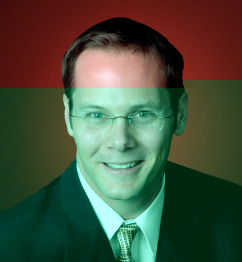Richard Peterson

Inside the Investor's Brain
November 27, 2013 | 20:00
By studying the behavior and brain activity of traders and investors, physician and financial consultant Richard Peterson devised a technology that helps evaluate how people’s fear and expectations affect the stock market. On November 27 he was “at” the Digital October Center to discuss this topic.
On November 27 the Digital October Center held a teleconference with Richard Peterson, expert in the behavioral economics field, proponent of algorithmic trading, and author of mathematical models and quantitative analysis methods that have won praise among market experts.
He is currently busy successfully juggling careers as a scientist, professor, and financial consultant while managing friends’ stock investments using new media monitoring technology that collects and analyzes the moods of thousands of economic agents both large and small.
His book, Inside the Investor’s Brain (2007), a textbook for independent “financial psychoanalysis” that contains recommendations for how to improve money management habits and react to the quickly changing market landscape, brought him wide-spread recognition.
As a physician on the one hand and a businessman on the other, Peterson was able to combine the latest scientific achievements in the area of neuro-economics and the experience of successful investors in his book, something that got him invitations to appear on CBS, BBS, and leading English-speaking radio stations.
Researchers from Indiana University showed that by gauging the disposition of Twitter users alone it is possible to predict with 86.7% accuracy how the Dow Jones will change in the next three days. However, when Richard was working with Stanford researchers in the mid-2000s he went even further: by developing a series of experiments modeling the stock market game, the group of scientists was able to demonstrate a solid link between emotional states and the success of financial decisions, while also measuring neuron activity in the brains of investors and traders in “near-combat” conditions.
At the end of the 1990s, he and some other experts founded MarketPsych, where they taught fund managers and investment bankers “emotional management,” or how to make decisions, taking into account psychological and social factors that can influence market variables.
Soon they launched a system that every day selects two million thematic messages from blogs, online media, and social networks, analyzing their emotional flavor. Operating on that data, Peterson and his colleagues began frequently giving clients exact advice regarding which stocks and futures were worth paying attention to in the near future. Since 2012 that system has been known as Thompson Reuters MarketPsych Research.
During the lecture, Richard discussed:
- how our brain works when we are making a decision about where to spent money and what that decision ultimately comes down to
- how strongly your psycho-emotional state (stress, fear, hope) can affect the riskiness of your investments and the economies of entire countries
- typical mental tricks that get in the way of making optimal financial decisions
- which month is always the most “optimistic” for investors and which is the most “aggressive”
- how Twitter and Facebook help traders earn more
- how knowing yourself and crowd psychology can help you become a “smart investor” and even partly compensate for a lack of market knowledge.
The event is free thanks to Rostelecom, the project’s general partner. Register and join us at the Digital October Center.
POST-LECTURE DISCUSSION PARTICIPANTS
-

Vasily Klucharev
HSE Faculty of Psychology, Dean
-

Vladimir Moryzhenkov
PhD in Economics, Professor, State University of Management
-

Anatoliy Radchenko
Senior partner, United Traders









































